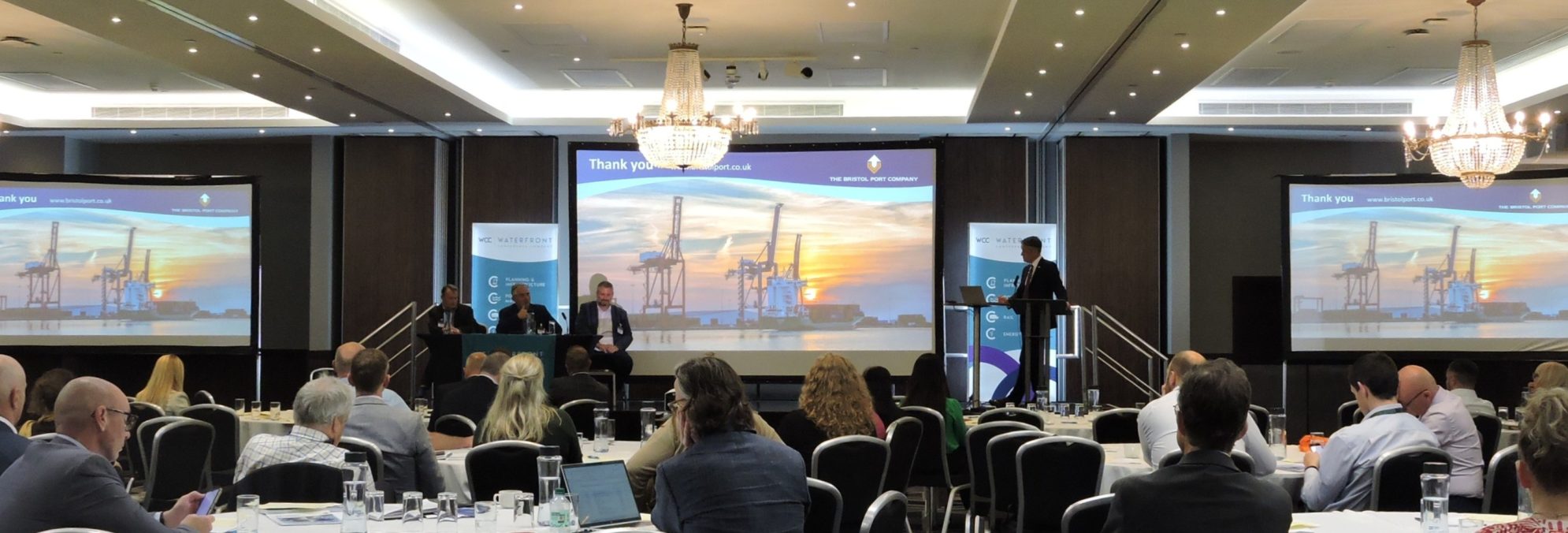
Bringing the Energy: Did day two of the UK Ports Conference live up to expectations?
It was the turn of the UK Major Ports Group (UKMPG) to chair the second day of the 2025 UK Ports Conference, as delegates returned to the Royal National Hotel in London to continue the debate around the challenges and opportunities facing the ports and maritime sector.
UKMPG’s CEO and former government adviser, Geraint Evans, set the scene with a big question; can industry and government collaborate on a shared, long-term vision for investment in port infrastructure that maximises the opportunities for development, connectivity, decarbonisation and power generation? He called for a “full and frank discussion” to help the sector deliver the type of game-changing projects that his members are pursuing and stakeholders across the UK are relying on. No pressure then.
Energy emerged a key theme of day two, as one of the UK’s port powerhouses – Associated British Ports – took the stage with the DfT’s head of Maritime Decarbonisation Policy and multi-disciplinary consultancy firm, Mott MacDonald. The latter concluded that energy and future fuels has effectively become ‘core business’ for ports, along with everything that goes with it – from planning and scoping, to market development and pricing.
Ports have long been interested in energy, with many of them becoming early-adopters of renewables, at least in part to satisfy the demand of power-hungry occupiers and tenants on their estates. But many are now looking to the sea, with rising demand from shipping companies to ‘plug in’ at UK ports, as they regularly do across Europe. The capability to deliver ‘shore power’ at UK ports is growing but core challenges remain – not least the crippling costs of industrial electricity in the UK and the pent-up demand for new grid connections. Think of the NHS waiting list and multiply it several times.
Ports are also learning that they can’t put all their eggs in one basket. From an energy perspective, that means continuing to look at renewables but also considering their roles in supporting and developing markets in ammonia and hydrogen, LNG and nuclear. In other words, becoming ‘fuel neutral’, as customer needs, future technology trends and government policy frameworks evolve.
Ports have always prided themselves on their ability to flex to meet market demands, changes in trading patterns and geo-political circumstances and emerging technologies. In today’s uncertain world, this is being tested more than ever and very few options are being removed from the discussion when it comes to revenue generation and technological innovation. Ports that were once fierce competitors are now collaborating on major projects for the benefit of their local communities and UK plc, including the huge opportunity presented by generating Floating Offshore Wind energy in the Celtic Sea.
Delegates also heard the decarbonisation experiences of two very different Trust Port players – the Port of London Authority (PLA), with the responsibility for looking after 95 miles of the tidal Thames and the Port of Aberdeen, purported to be the UK’s oldest business and a crucial enabler of the oil and gas sector.
The PLA recently engaged its diverse range of stakeholders – from paddleboarders and kayakers, to the ports of London Gateway and Tilbury – on a project to deliver a series of riverside charging points that could power a range of vessels on the waterway. Although this has been attempted several times in the past, the involvement of UK Power Networks, with its detailed knowledge of supply-and-demand and the intricacies of viable grid connections, has added new impetus and purpose to a project with wide-ranging benefits.
The Port of Aberdeen has also been busy on the decarbonisation front, implementing one of the biggest shore power projects in the UK and electrifying several parts of its operation, reducing its scope one and two greenhouse gas emissions by a whopping 62% in the last two years. One frustrating outcome is that scope three emissions (greenhouse gases released by its customers and supply chain) nudged up from 97% of the overall total associated with the port, to 98%, highlighting the huge job that still remains to be done.
The Department for Transport urged conference delegates to share their experiences and opinions as it continues to consult on a range of policy areas linked to decarbonisation and marine energy. Today was another opportunity for the industry to have its say.
Post conference, the port operators and advisors, supply chain partners and shipping companies, will be back at their desks and bringing the same energy to bear on projects that could accelerate the green energy transition, support UK trade and industry and boost the prospects of coastal communities across the UK. All power to them.
Antony Jones is a senior consultant at Freshwater and attended the UK Ports Conference, organised by Waterfront Conference Company, on 4-5 June 2025.
